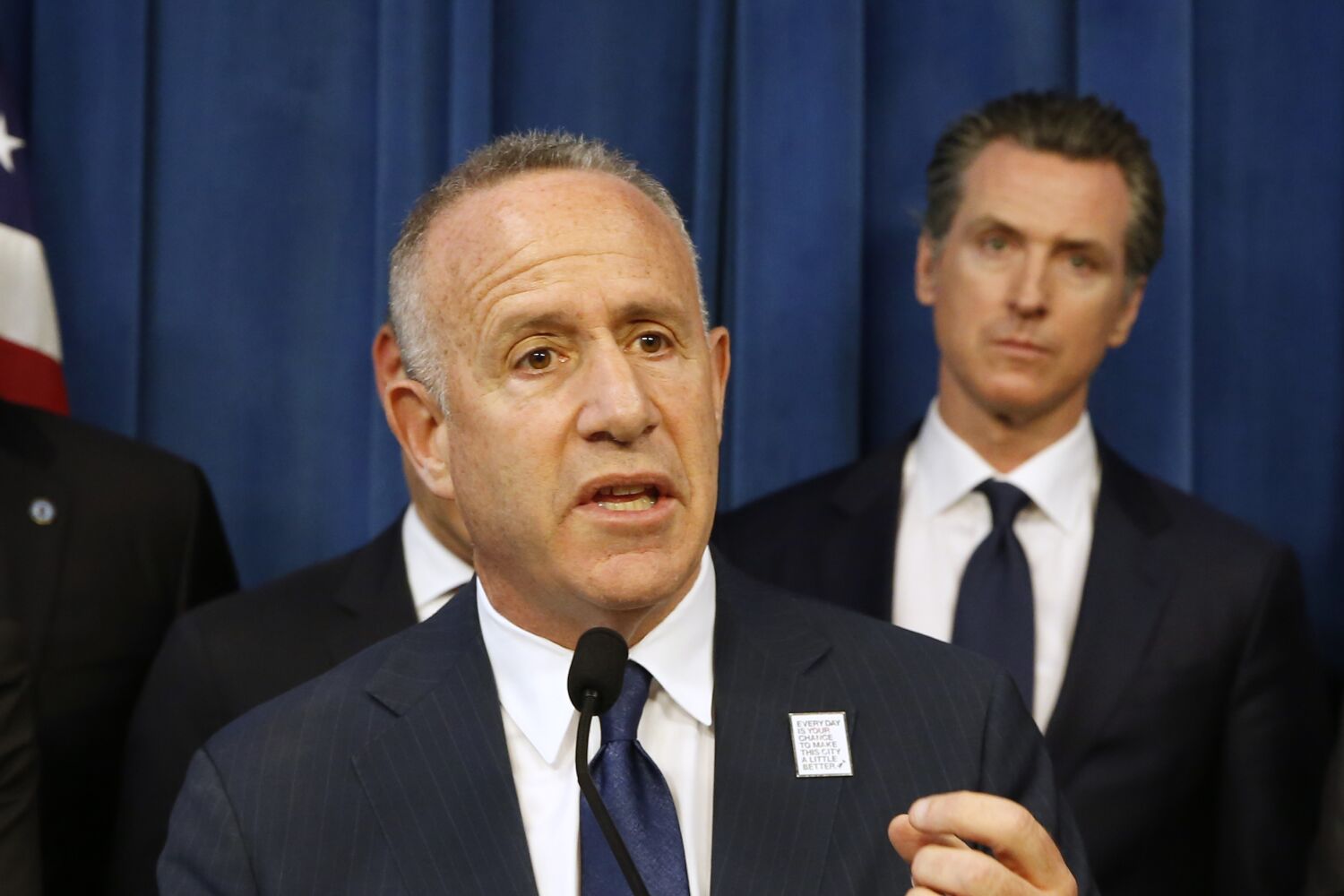Global Courant 2023-05-18 17:00:53
SACRAMENTO —
Governor Gavin Newsom and the California legislature will soon receive a comprehensive set of recommended reparations for African Americans whose ancestors suffered economically from slavery and racial discrimination. Than what?
Then the governor and legislators will have to get out of the cover, face the public, and come up with a better answer than we’ve heard so far: “I’m waiting for the final report with recommendations.”
The report will be sent to the Capitol by July 1. That’s the deadline for the California Reparations Task Force — created by Newsom and lawmakers — to wrap up its two years of often acrimonious work.
This will be a tough one for any politician and policy maker trying to strike a balance between providing a realistic semblance of justice without breaking the bank of state. And there will be those who flatly think large reparations are unreasonable, but are hesitant to say so publicly.
“I’m a hard ‘no,'” one influential Sacramento Democrat told me. When asked if I could quote him, he replied, “Oh, sure, and then I’m called a big racist and given all sorts of nonsense.”
It wasn’t so much the monetary reparations that bothered this individual, but a long list of other preliminary recommendations, such as the introduction of a single-payer healthcare system that has twice been rejected by legislatures.
One person willing to speak on the record was Democratic political consultant Steve Maviglio, a veteran of the Capitol.
“Democrats need to be careful about this,” he told me. “There needs to be an aggressive educational component on the recommendations to overcome the voter skepticism that has been reflected in polls so far.”
No poll has been conducted on what California voters think about reparations that I know of.
But the Pew Research Center conducted a nationwide poll in November, and the response was overwhelmingly negative: 68% of adults opposed paying the descendants of slaves in some way. Only 30% supported it.
Within racial and ethnic groups, 77% of black people supported the idea. But only 18% of whites did, along with 39% of Latinos and 33% of Asian Americans.
For those in favor of reparations, cash was the least popular option. The most popular idea – by 82% of those surveyed – was scholarships.
A recommendation from the task force is that all state residents eligible for monetary reparations be entitled to free tuition at California universities.
That certainly has merit. It could be a first step toward free education for all Californians — regardless of income — at the University of California and the state university system.
Don’t be so quick to dismiss that concept. For generations, free education was the state’s policy until the 1970s, when Sacramento became cheap and the universities became greedy. Free education had long been a California attraction, helping to provide the state with an educated workforce that built its economy.
California’s voters are more liberal than Americans as a whole, so they may be more open to reparations than most of the country. But I suspect it will be a hard sell.
It requires strong support from the governor, and so far he hasn’t said much. What he said recently got him in trouble. He seemed to reject the idea of cash payments, an impression his office later tried to erase.
“We must continue to work as a nation to atone for our original sin of slavery and understand how that history has shaped our country,” he said in a statement.
“Dealing with the legacy of slavery is about much more than cash payments,” Newsom said. “Many of the task force’s recommendations are critical points of action that we’ve already worked hard on … as we invest billions to eradicate inequities and improve equity in housing, education, health care and beyond.”
But wait! Did he say reparations should be a national endeavor — spearheaded by Congress and the president — and not the sole project of a state, especially one that was not part of the Confederacy?
Many Californians would probably agree.
After all, the federal government under President Reagan apologized in 1988 for the imprisonment of Japanese Americans during World War II and gave the survivors $20,000 in reparations. California was probably the loudest advocate for that embarrassing arrest.
The task force proposed cash payments of more than $20,000 for descendants of slaves. It has not recommended a specific amount, but has posted damage from slavery and racial discrimination from $150,000 to over $1 million per person. So we could be looking at tens of billions of dollars in payouts. Or more.
Good luck with that. The governor just predicted a budget deficit of $31.5 billion for the next fiscal year.
“I’d like to see something in this year’s budget,” said Sen. Steven Bradford (D-Gardena), a task force member and vice chair of the Legislative Black Caucus. “The budget reflects our values. If it doesn’t fit in the budget, it doesn’t really exist.
“I’m totally committed to making sure this is real, not aspirational,” he says. “We have to put meat on the bones.”
But he also says, “Reparations shouldn’t be just a check.”
He would like something similar to the post-World War II GI bill that helped veterans buy homes. “Zero down payments for first-time homebuyers and low interest rates. Generational wealth is passed down through ownership,” says Bradford.
Until the late 1960s, black Californians—and often Latino and Asian Americans—were denied access to housing in many white neighborhoods because of racial restrictions.
When I said that California had been admitted to the Union as a free state—not a slave state—Bradford replied, “That dog doesn’t hunt. We were a free state in name only.”
Southerners brought their slaves to California and held them until slavery was abolished during the Civil War. The state had no laws that made it a crime to enslave anyone.
Nothing brings out the worst in politicians and people like a fight over race.
The impending battle in the Capitol over reparations can have a happy ending for everyone, but only if there is a realistic compromise.








